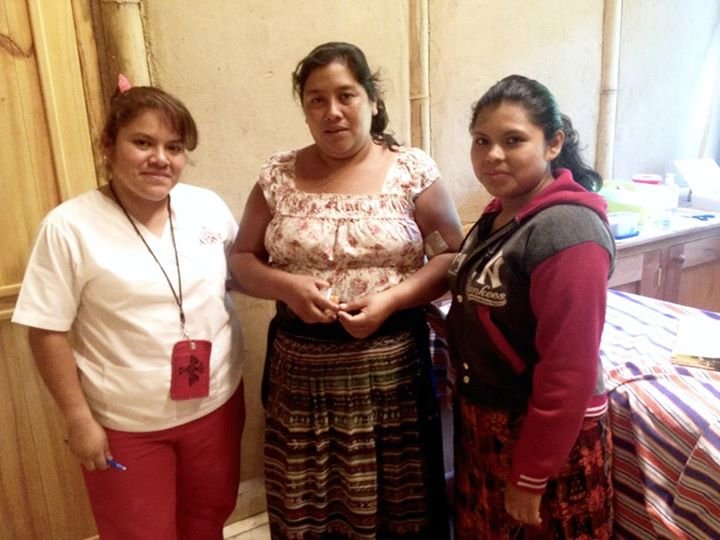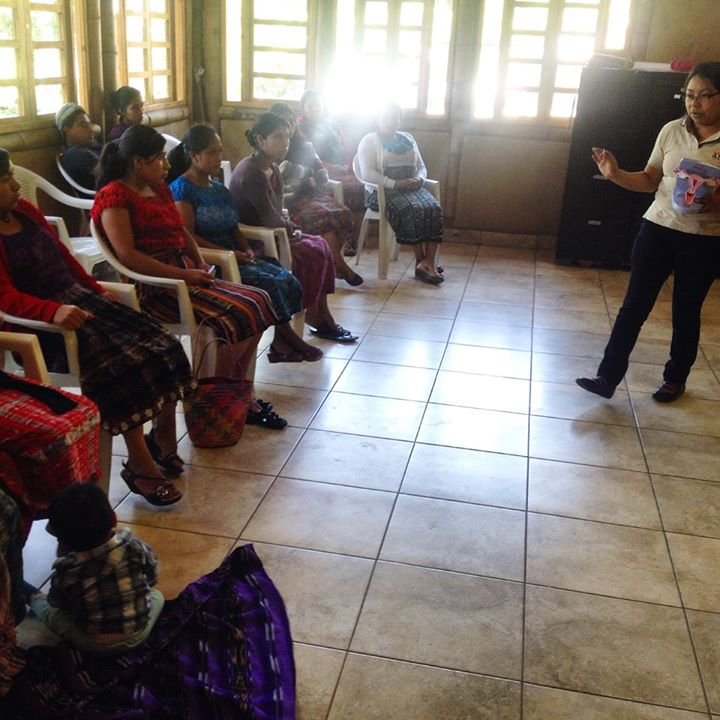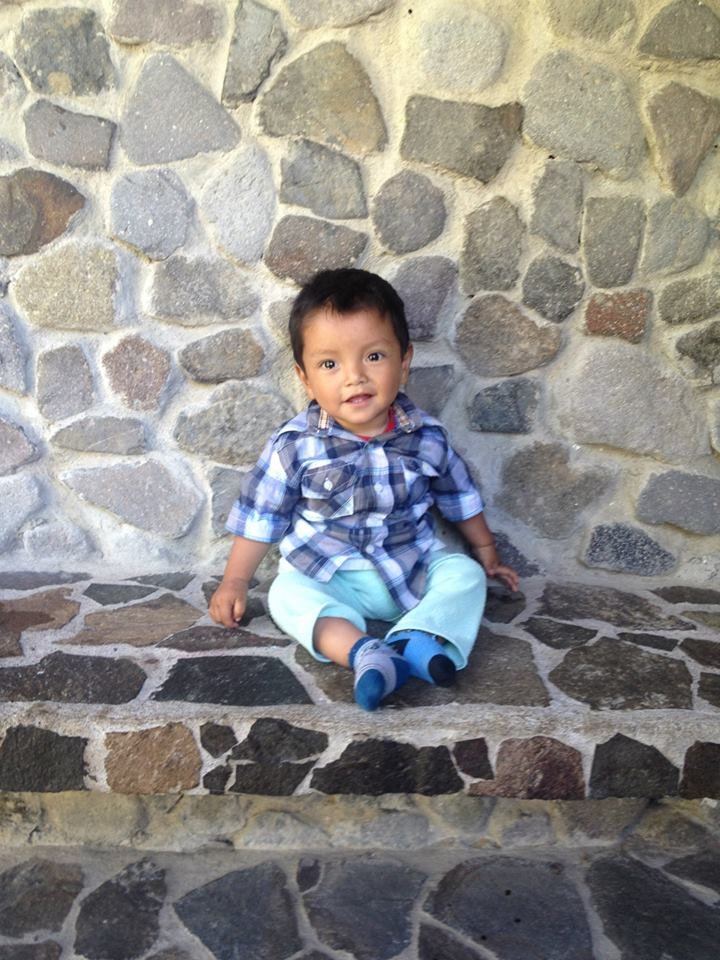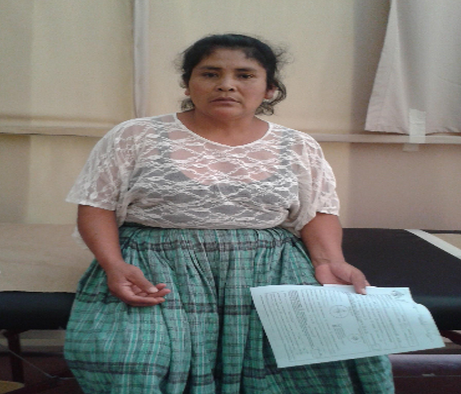By Sally Parmelee | Development Coordinator
Scaling up our service provision throughout Guatemala this year has already made an important impact on our team’s ability to prevent tragic cases of cervical cancer in the lives of women, mothers, sisters, and friends. In June alone, our two mobile units hosted 8 clinics in the Northern and South-western regions of the country, offering preventative services to over 100 women. For 39 year old Olivia from Chivencorral, a farming village in Alta Verapaz, the availability of these services could not have been timelier. Olivia was one of many women survivors of domestic violence in Alta Verapaz who sought integral support from our local partner Ak Yu’Am and attended our cervical cancer clinic at the center. The single mother of three had left an abusive relationship to ensure the safety of her 11, 16, and 19 year old children and herself at Ak Yu’Am’s center.
Using visual inspection with acetic acid (VIA), a technique ideal for low resource settings in that results are instant, to perform the screening, WINGS Nurse Rosa detected precancerous cells. Olivia was terrified, telling Nurse Rosa, “I’m going to die…what will happen to my children?”
Olivia was confused as she visits her local health center each year to undergo a pap smear and never received any negative results in the past. Unfortunately in low resource settings like Guatemala where laboratory facilities are often underequipped, we find that pap smears do not necessarily detect cell abnormalities as effectively as VIA. Nurse Rosa quickly calmed Olivia, explaining that the cells had not yet led to cancer and we would provide cryotherapy immediately to treat the abnormal cells and thus prevent cervical cancer from developing.
Although relieved to know that treatment was available, Olivia was worried about paying for treatment. As a domestic worker, she earns $65 per month which just provides for her family. WINGS was more than happy to forgive the cost of screening and treatment so that Olivia could lead a healthy future and be there for her children.
On the other side of Guatemala, 47 Maria-Filomena returned to WINGS’ mobile clinic in San Pablo La Laguna to undergo VIA. She visited WINGS three years ago for screening and as her results were normal, Maria-Filomena was able to wait three years until her next VIA. However, at our June clinic hosted in collaboration with the Organization for the Development of the Indigenous Maya (ODIM) at one of their two wonderful fixed clinics on Lake Atitlan, Nurse Flori, who conducted the screening three years ago, detected abnormal cells on her cervix and provided Maria-Filomena with immediate cryotherapy treatment. Both Maria-Filomena and Olivia have said that they are recovering (emotionally) from their brief scares and were fortunate to have undergone timely cervical cancer screenings.
Not only do we emphasize the importance of timely detection and prevention, but we also believe in the importance of collaborating with other local NGOs to bring reproductive health services to the most vulnerable individuals. By working together, organizations can share the load, rather than try to take on every issue that arises. Our relationships with Ak Yu’Am and ODIM allow women we meet to receive high quality care for a range of sexual and reproductive health issues, including gender-based violence. We are grateful to these local organizations for their support and look forward to strengthening our collaboration in the future to make sure that women like Olivia and Maria-Filomena get the treatment they need to prevent cervical cancer.
Stay tune for more updates from our cervical cancer program – this month we’re off to Totonicapán in the Western Highlands to offer clinics to women’s weaving cooperatives and local development organizations.
Thank you for your continued interest and support, and for making WINGS' work to spread awareness of and prevent cervical cancer possible.
Project reports on GlobalGiving are posted directly to globalgiving.org by Project Leaders as they are completed, generally every 3-4 months. To protect the integrity of these documents, GlobalGiving does not alter them; therefore you may find some language or formatting issues.
If you donate to this project or have donated to this project, you can receive an email when this project posts a report. You can also subscribe for reports without donating.
Support this important cause by creating a personalized fundraising page.
Start a Fundraiser


